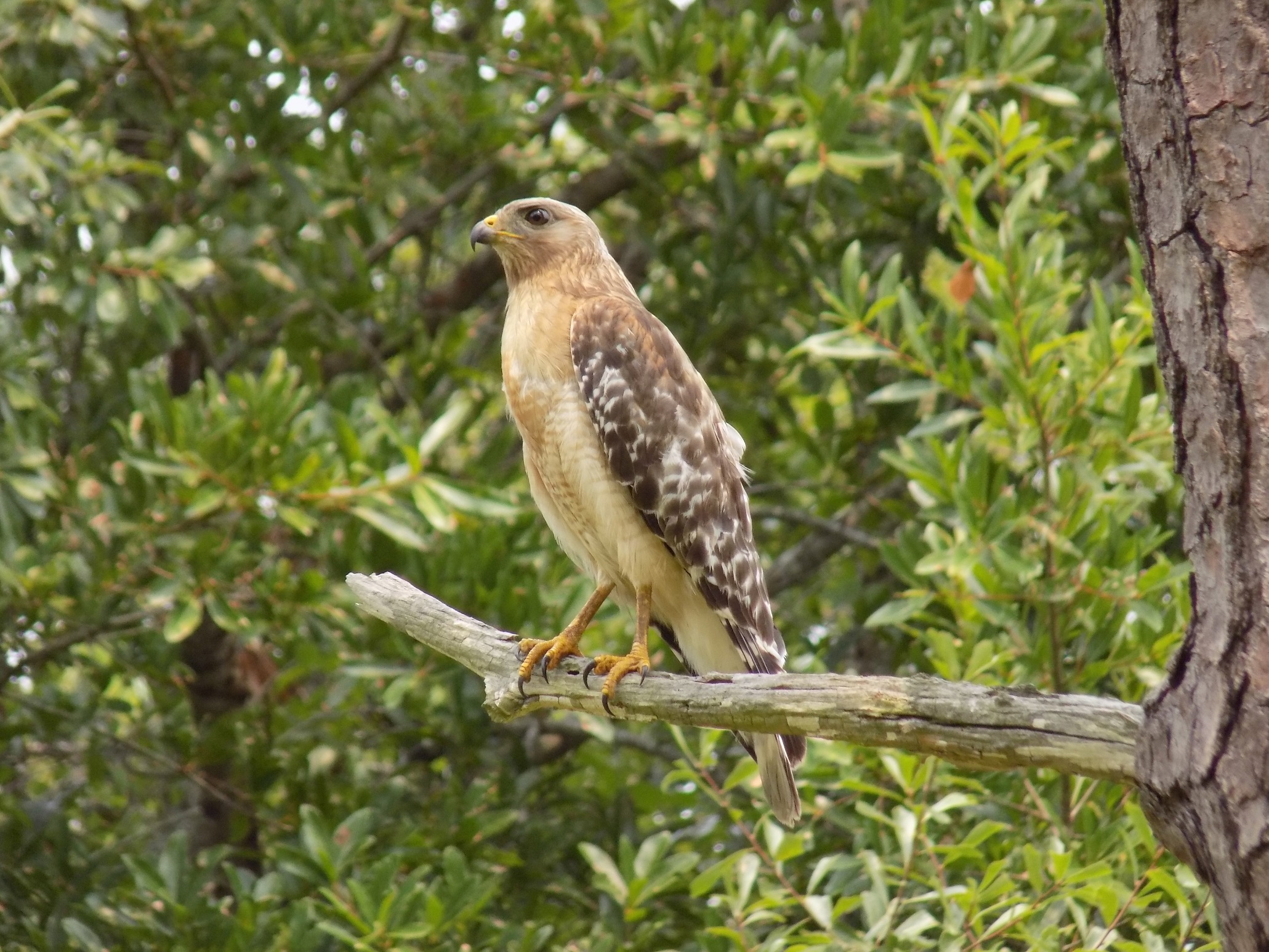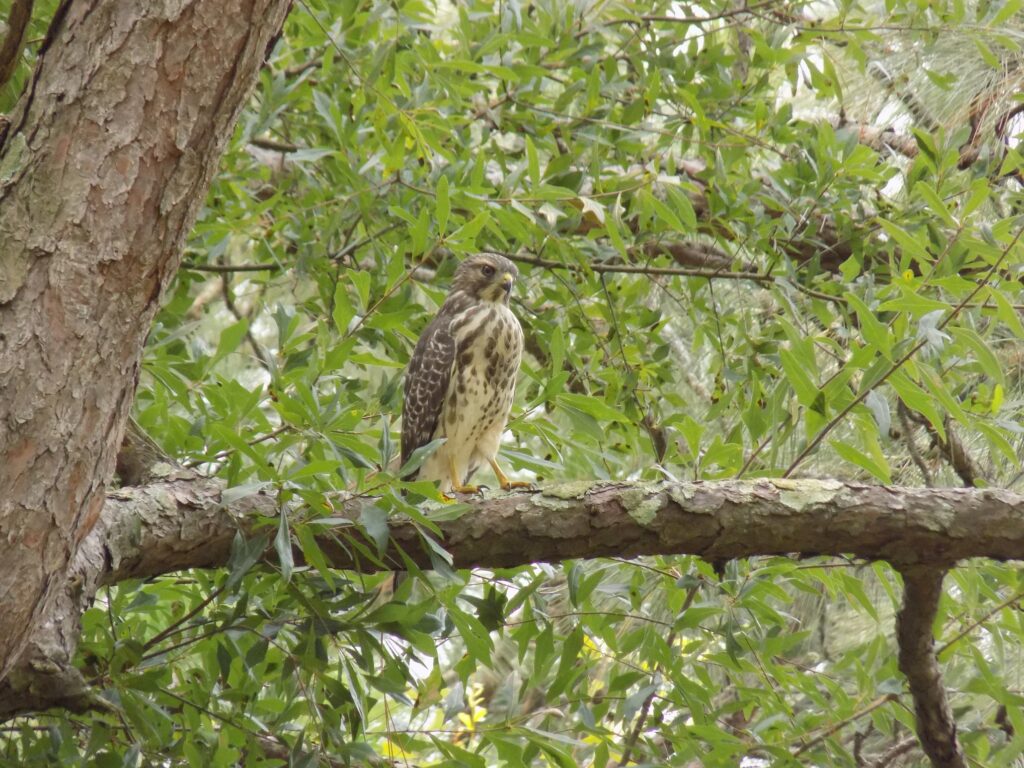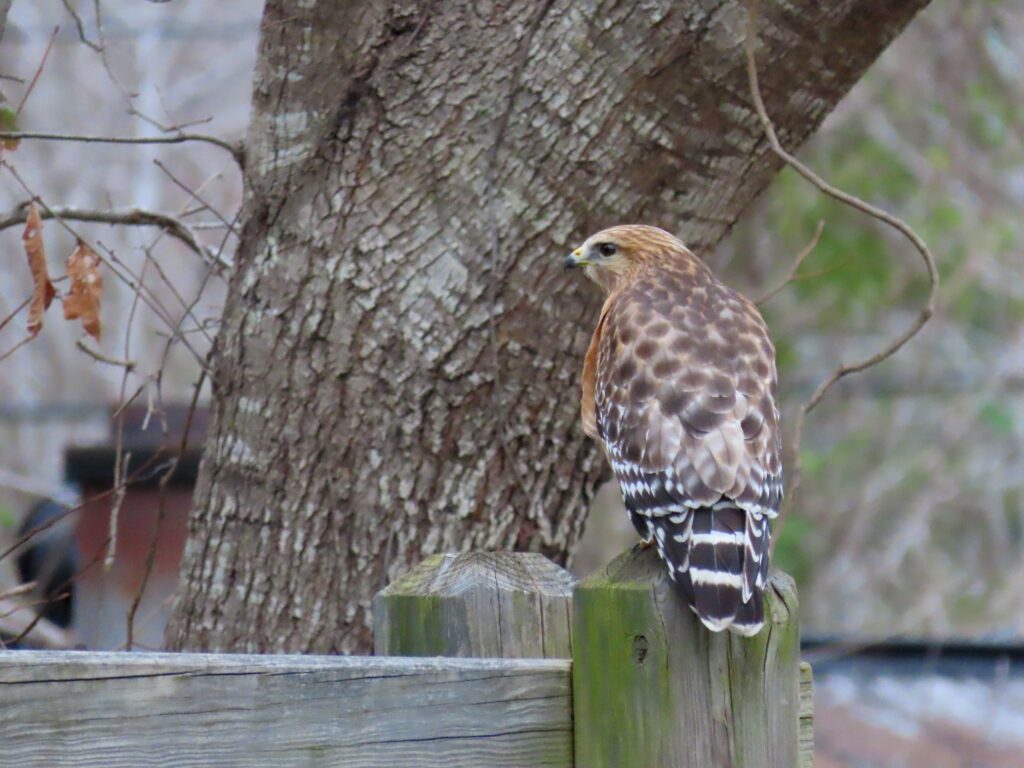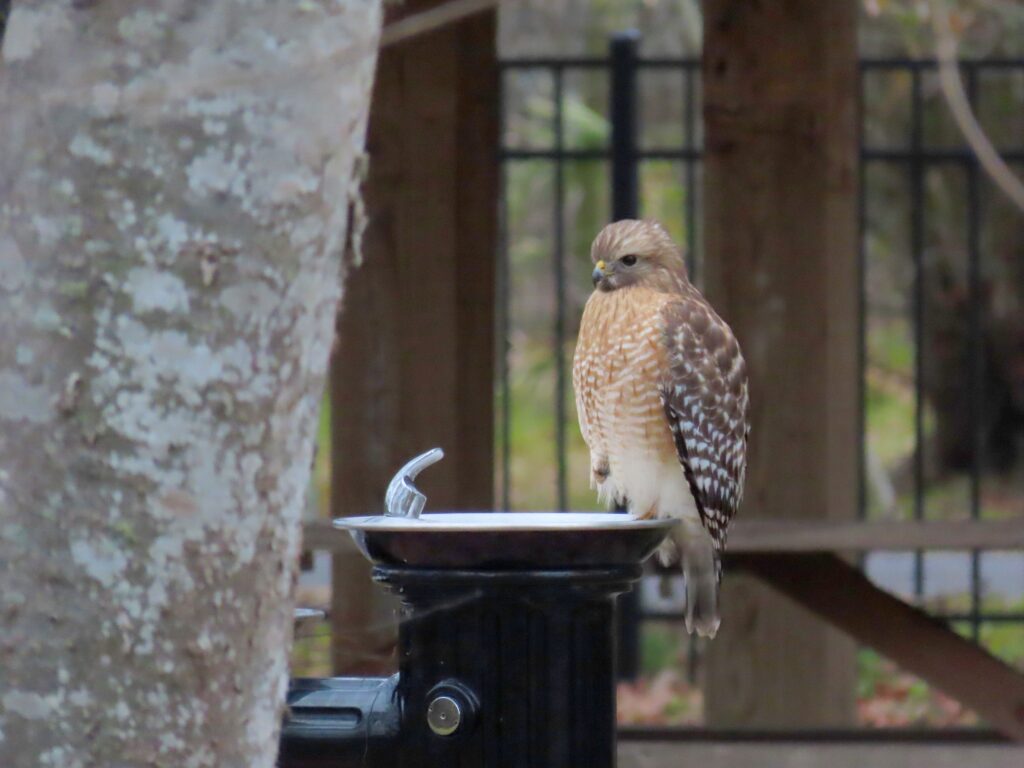




This week for Flora and Fauna Friday we’re gazing upon our most reliable resident raptor, the Red-shouldered Hawk (Buteo lineatus).
The Red-shouldered Hawk can be found year-round across the Southeast and the state of South Carolina. Compared to some of our other birds of prey, its abundance remains consistent and high throughout the year. Meaning this is the most likely raptor for you to spot across the Lowcountry. They’re not a hard hawk to identify either. They’re about average size for our raptors, bigger than a Cooper’s Hawk but smaller than a Red-tailed Hawk. Adult birds have rust-red shoulder patches, a rusty-orange belly broken up by fine white bars, and a black tail with several thin white bars. On the wing, they can easily be picked out by the “windows” at the tip of the wings. These are distinct translucent, half-moon-shaped patches in the feathers that brighten against a sunny sky. The call of the Red-shouldered Hawk is unmistakable as well, a loud descending scream repeated a half dozen or more times in short order. They’re not shy about calling either and can be heard vocalizing far and wide. However, our Blue Jays love to imitate the Red-shouldered Hawk’s call and they’ve got a spot on impression too. The best way to sort out the real deal hawk hollerin’ is by paying attention to the depth and the breadth of the screaming. Blue Jays are much smaller and don’t have as much bass behind their call. They also don’t commit to the bit entirely and often stop after just two or three shouts. Red-shouldered Hawks are partial to open woodlands and clearings. However, they can be found practically everywhere from swamps to savannas and from farm fields to suburbs. They hunt from a perch, waiting and watching for motion, before diving down to grab their prey. Red-shouldered Hawks eat a variety of prey including songbirds, rodents, frogs, lizards, snakes, and large insects.